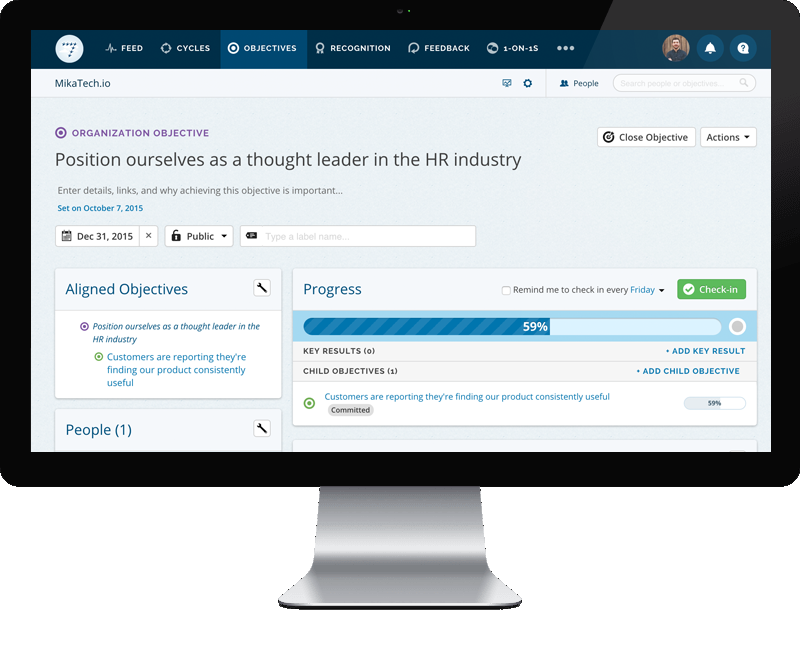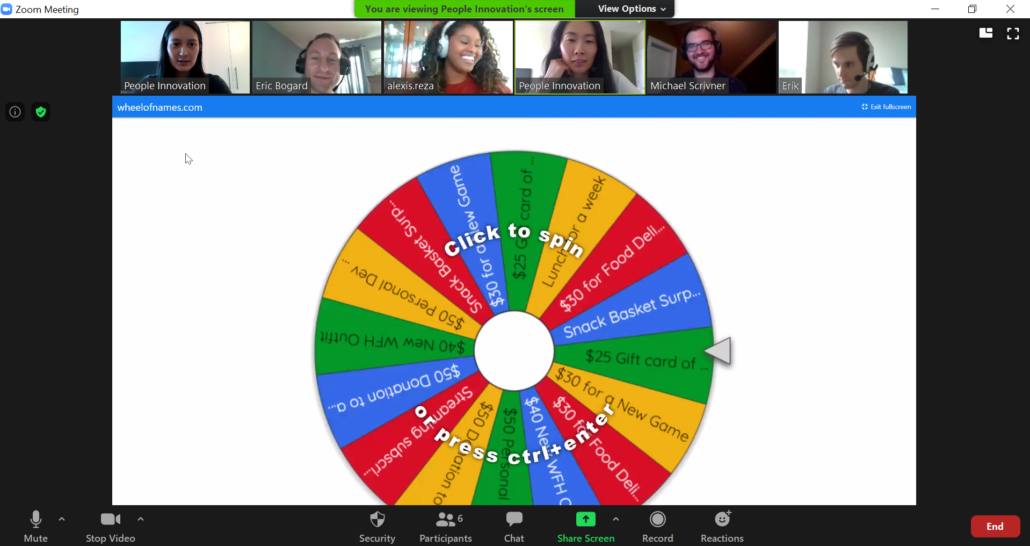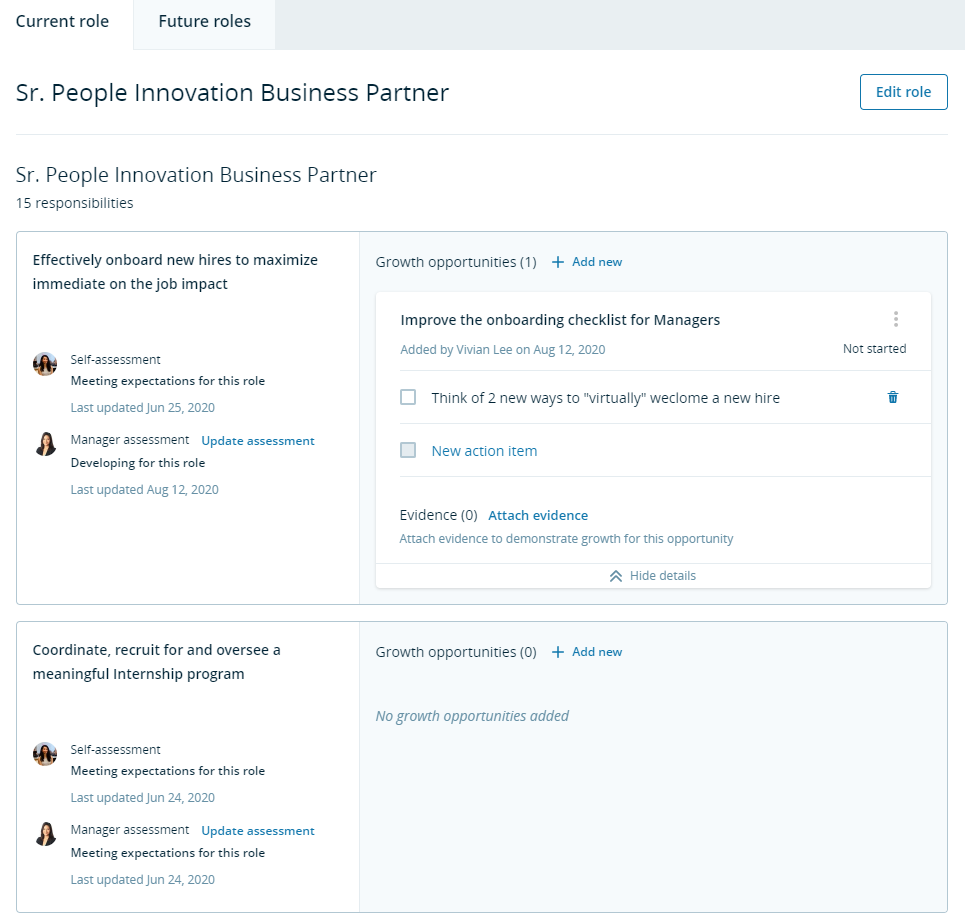Say hello! We’d love to hear from you.
© 2024 Copyright – Small Giants Community. All Rights Reserved

Is everyone on your team working towards the same organizational goals right now? Does every person know how their daily contributions impact those goals? Does everyone have a clear picture of the current and forecasted financial state of the company?
In truly great cultures, employees know that the work they do matters, they can see the impact they are having, and they are recognized and rewarded for it. In a culture of performance, clear performance measurement systems work together to give everyone the information necessary to drive success. By engaging employees in tracking and achieving goals, you position everyone for a successful future.
Especially in times of uncertainty, putting systems around individual and organizational performance takes the guesswork out of performance management and predicting outcomes. In this latest installment of Stepping Up, you’ll meet four leaders who are seeing the hard work of building a culture of performance pay off — and they’re sharing the systems and tools they use to propel their organizations forward.
Here’s how to set goals, share financials, and manage performance like a Small Giant.
At a recent check-in with Arkadium CEO Jessica Rovello, Vivian Lee found that gratitude dominated the majority of their conversation. After dedicating significant energy to building a goal-setting framework for the 100 employees at their games company, the entire team had a sense of clarity and direction when they were suddenly separated by the pandemic.
“It’s really given our leadership team such a sense of trust knowing that everybody has their focus and is working on all the right things to propel the company forward,” says Lee. “Lack of trust or misalignment on goals can take up a lot of mental headspace for leaders and team members, and we’ve been able to eliminate that problem by having specific, aligned goals for everyone.”
For one week every quarter, goal-setting becomes a company-wide event at Arkadium. Kicking off with a set of goals set forth by the Leadership team, the Products team then spins its own set of goals based on that. From there, the company hosts an in-depth Q&A session for team members to get clarity, understand timelines, and get a sense of how they can impact each of the goals presented.
Next, each team member spends a few days writing their own individual goals that ladder up to the product goals — a process that everyone has been formally trained on. In order to ensure goals are clear, aligned, and everyone can work in full confidence, the People Innovation team holds ‘goal-setting office hours’ for everyone and offers access to goal-writing resources. Once goals are submitted, VPs on the Products team offer specific feedback for individuals.
By the end of the week, everyone on the team submits their goals for the quarter to the company’s performance management system (they use 7Geese).

“Personal goals funnel up into product goals, which ultimately feed into our company goals,” says Lee. “The platform is very transparent and people are responsible for their own accountability — they continually update their progress and the program shows their completion rate for different KPIs. Our teams have a clear path forward and they have been so productive.”
Bonus! Peer-to-peer recognition may look different virtually, but that doesn’t make it any less important. Arkadium uses virtual badges to encourage team members to shout one another out for stepping up, exemplifying core values, and other accomplishments. Peer-to-peer recognition has actually increased 15 percent since they’ve gone virtual — the team had over 800 recognitions last quarter, celebrating 93 different team members.
Looking for a new way to celebrate employee anniversaries (called ‘Arkversaries’ at Arkadium!), birthdays, and other milestones? Arkadium celebrates by offering a spin of their virtual prize wheel during Friday meetings, with fun and unique prizes like getting lunch sent to your home or picking out a new ‘work from home’ outfit.

Performance management doesn’t come easily to most leaders, especially when someone’s performing below expectations. Many struggle to succinctly convey the issue, and others just avoid bringing it up at all.
At Arkadium, every employee has an individual scorecard listing outcomes and competencies for their role. Twice a year, both the employee and manager rate the employee’s level of accomplishment for their role’s outcomes and competencies on a 5-point rating scale. For example, their role may require a Level 3 or higher in using Excel, and the employee only rates themselves as a Level 2 and needs support.

This process is a natural segue way for team members and managers to address any discrepancies in performance as well as perception.
“If there is misalignment, this process cuts straight to the point,” says Vivian Lee, SVP of People Innovation. “It’s a game-changer for creating space for clarifying expectations and creating a growth plan where it’s needed. It’s also important not to overlook your A-Players — if someone is exceeding expectations and very driven, create an action plan that matches their ambition.”
A culture of performance creates trust and a strong foundation for your team, all while systematizing the things that matter most to your company. Without clear metrics at the organizational and individual levels, your employees are prone to feel misaligned, unmotivated, and unsure of how to achieve what’s expected of them.

Maybe your leaders are great at running their departments, but you wish they’d think about the bigger picture. Or maybe you’re interested in financial transparency, but you don’t think your employees will care about (or even understand) business finances.
Your emerging leaders have untapped potential, they just haven’t found the right training program yet. The Small Giants Leadership Academy guides your emerging leaders through a year of learning and connecting, introducing them to the systems, tools, and people to take their leadership — and your organization — to the next level.
These leaders are part of Small Giants companies — companies that prioritize their purpose and culture and invest in their emerging leaders.
One way Small Giants companies invest in their next generation of leaders is by enrolling them in the Small Giants Leadership Academy. This robust one-year certification program consists of virtual learning sessions with expert leaders and coaches, an extensive resource library, on-the-ground meetups with your cohort, a leadership assessment, and your event ticket to two Small Giants gatherings.
© 2024 Copyright – Small Giants Community. All Rights Reserved
Small Giants Community Program Director
Virtual Position
The Small Giants Community is hiring! Are you looking for a job where you get to work remotely with a hard-working, tight-knit team? Do you like talking about values-based businesses, inspiring leadership stories, and Ted Lasso? Boy, do we have the job for you!
We’re a high-performing team working hard to grow the Small Giants Community, an organization committed to identifying, connecting, and developing purpose-driven business leaders. Our network spans more than 6,000 leaders, 300 companies, and 28,000 employees who are growing with intention, and we believe that more and more people are beginning to see the value in purpose-driven business.
Basically, we’re a small but mighty team. We’re energized by coffee, the sun and leaders doing great things in the world via their companies. We’re looking for someone to add value to our team with their own unique skills, motivations, and experience. This person has to be flexible and able to manage their own workload deftly while also being incredibly team-oriented.
Position Overview:
We are seeking a highly motivated individual to join the Small Giants Community as a Full-Time Program Director. In this role, in collaboration with the executive director, you will be responsible for overseeing and managing various programs including the Summit, Leadership Academy, Sounding Board, content development, and our marketing efforts. You’ll also be responsible for cultivating relationships and managing a team. You will play a vital role in shaping and driving the organization’s mission to foster values-driven leadership and promote a community of purpose-driven businesses.
Responsibilities:
Key Qualifications:
Benefits & Perks:
About the Small Giants Community team:
Our Purpose
To identify, connect, and develop purpose-driven business leaders.
Our Core Values
Trust Each Other: We understand that the team will thrive when we fully trust one another and assume the best intentions, support one another, and work toward a common goal.
Grow with Purpose: We continuously invest in our learning and development, seeking new opportunities to grow our skills and strengthen our weaknesses so that we can better serve the Community.
Work Mindfully: We prioritize meaningful, quality work over everything. We’re committed to being present with the current objective and giving it our full attention, providing the best possible opportunities and resources to our Community.
Create Great Experiences: We are committed to doing things differently. We understand that the Small Giants difference is high-class, personal and meaningful experiences that result in lifelong learning and lasting relationships.
Be Responsive: We believe in meeting and exceeding the promises we make. In working with each other and with customers, we are responsive and accountable.
Sounds like an interesting opportunity and/or want to learn more? Email your resume and cover letter to hamsa@smallgiants.org.
Notifications
